Hi. It’s a Thursday in March, it’s raining, and I found a way to peel myself up out of bed today to commune with you all. Welcome to threadings, the newsletter and podcast where we discuss Black feminism, love studies, and other things keeping me together. Spring has sprung!! Happy new year!! I am thawing out and it’s glorious. this is a one take reading of the first episode of Season II of Threadings.
An essay once titled, “how do I love myself?” (but I didn’t know what I meant by “love,” so first i sound it out)
Right now, as of 24 years old, I relearning love for myself.
By which I mean: love is the feeling that compels you to action and the action itself. Love is both the urge taking hold in your corporeal body and in your metaphysical psyche that moves you toward somebody’s highest good. Love is also then the results of that inclination; love is the feeling that compels you to act and love is the act itself. To be in the feeling love and remain inactive is to bathe in the warm waters of communion, soak there, and then refuse to get out. You will never really get the full effect of the baptism if you don’t get up.
The business of loving is personal ; it is practical ; it is an element of the present that reaches to the past and future seamlessly. We cannot talk about love and be unchanged. If I am to be a student, a disciple of love, I have to first start with a strong inventory of self. I find it so much easier to love what it is that I know.
Love for myself is what I feel on the grand scale, the “I want you to bud and flourish” scale, the dust the world with pollen! scale, the ♫♪bitch. Get it together, bitch. scale1. Love is what I felt at 23 when I would inhale my aura flickering in yellowing decay, billow out something wearable for the day (like maybe a pastel blue) and see my seven year old self blinking back in pride. The love that compelled me to action was (then) peace-seeking, and self-saving, and entertaining the idea that we might live until old age for the very first time.
I am here now (24, really twenty-four-and-a-half) with smaller kinds of love— the kinds that do the dishes before bed at night because then we’ll wake up smiling, and I sigh in delight when we smile like that. I have stronger ideas about what I owe to the teeny me(s) that brought me here. Each day has a Love that is less about the grandiose hero work of saving my own life and more about the little kindnesses and stewardships I can create of my day. I love small and I love more often. I love myself enough to run to my journal again— archival remains one of my most favorite love languages.2
Most especially and because it must be said, I write in public (after many years of writing in private) because I am publishing what fifteen year old me wished we were reading about. She would have wanted to learn from an adult person who was honest about what they did and did not know. My life is in flux and in forward momentum so here is (briefly) what I know. (1) I have begun to relish my own company again. (2) I like myself. (3) It is easy to love myself when I like myself. (4) The stretch and stress of 22 and 23 were, respectively: do you know yourself well enough to be justified in your self loathing? (and) can you love yourself in servitude even if you do not like yourself in your current state?3
I consider myself precious enough to document and I am doing so in public because I think learning in public is valuable and rare, and I think reading + listening in public is valuable and rare, and I learn a lot from treating myself like a coming of age story in real time. In an effort to continue these habits, we enter into Threadings. Season II: study of self. For the next season of life or so, ask the following questions:
What does it mean to have love as a politic? What is love? Where do Black feminism and Black futures come in to thread things together? What else are we (my many selves) made out of? What are we kept together by?
This is my first attempt to answer some of these questions (and to relate love studies and Black feminism directly). I am going to tell you about the first couple times love turned me out like a peony.
Part One: Pablo Neruda
This man is the reason I took Spanish in high school. I will never forget the bulb that burst in my chest when I stumbled on Pinterest poetry as an early teen. Pinterest loves some Pablo Neruda. I didn’t find out he was a revolutionary until my first year of college, but of course he was. Look at the way he wrote about love.
Sonnet XVII was the first time I believed someone when the assured me that intimacy is something you can taste. It was a moment where I understood the thesis of my life to be poetry. This poem was one of the first times I felt vindicated in my obsessive need to get words exactly right— so I could make someone feel the phrase “so close that your hand on my chest is my hand” swell up and tumble in their mouth and come to the same conclusions I did, he must have writing this, that intimacy is something that swells up like warm bread. Intimacy is something you can taste. The idea that words can get you in that close intoxicates me. Close up, like the rise and fall of your chest. Our chest. Your eyes close as I fall asleep. Poetry was one of the first ways I learned to love myself, and two things happened with this poem at once: at seven years old, I found out I liked poems. That moment was brought to germination seven years later reading this and determining the only place I felt this kind of intimacy, the intimacy that dissolves distinction, was when I was wrapped up in words being born into the world.Poetry. Poetry and I were destined to be together.
Part Two: The Combahee River Collective and Identity Politics
There were many (many) times, I loved theory before this, but for some reason this text like… dog-ear marked me this random day in college. The Combahee River Collective Statement is a statement I’ve written and spoken about in other essays, podcast episodes, and on YouTube (coming to you again soon) because it’s foundational to my understanding of self. Circulated in 1977, The Combahee River Collective Statement served as the manifesto for the Combahee River Collective, a Black lesbian socialist political organization based in Boston. It’s widely credited for having formally introduced the concept of identity politics, but I don’t know that even the authors would take full credit for that. I think the text does a wonder-working job of taking what my bones say to me each day in this world and then stating it in clear English.
Three favorite excerpts below:
“Contemporary Black feminism is the outgrowth of many generations of personal sacrifice, militancy, and work by our mothers and sisters.”
The acknowledgement that Black feminism is not proprietary was a small revolution for me. Jennifer Nash also discusses this in Black Feminism Reimagined: After Intersectionality if you wanted further and deeper reading. This unending want to coin and own and gatekeeper theory can, sure, serve us in terms of getting paid and credited for contributions to cultural academy— however, Black feminism is the gift and exchange of thoughts of freedom. It is the outgrowth of many individual epiphanies, conversations in community, quits stitched and work done by mothers and sisters and great mothers and great sisters. The idea that I am a thread in a tapestry was a homing beacon for me. I am exactly as small as I that think I am and I rest in that.
“Black feminists often talk about their feelings of craziness before becoming conscious of the concepts of sexual politics, patriarchal rule, and most importantly feminism, the political analysis we women use to struggle against our oppression.”
And I did!! I did feel nuts!! You really do have to be nuts in order to prioritize community in this life and world. You have to be willing to sacrifice your comfort or sleep or work for the wellness of your friend. You have to create consistency and dedication where there is no obligation. Black women stitching each other together in this world gets us nothing but solace in one another and that has to be worth it for you. This world will make you feel nuts for thinking we are worth it to each other.
“Black women are inherently valuable… our liberation is a necessity not as an adjunct to somebody else’s but because of the need as human persons for autonomy.”
Black feminism is an assertion of enough. That we, finite and fleeting, are enough to want each other and find wholeness. Are enough to want, pull on, wear, bed, lie with, gift each other small morsels of freedom.
This is where the idea that the personal is political came from. Especially impactful for me in college, where i was only able to speak from experience if it was attached to an academic citation. The idea that I alone was enough to compel action was a first. I can do the things I need in this world because I need them and that’s enough. That was the place I came to feel that honing an active politic was an act of self love. When I say my politic is alive and she will kill me, I mean that one of the greatest acts of love I’ve committed in my own name was the tethering of myself to a future where the Negro can breathe. Because I am young, I have to think on my feet. Militancy alone cannot save us, especially under constant surveillance of the empire. How do we caretake one another without going to war, while navigating war, with the promise violence twenty years away, five minutes ago, just outside our doorstep?
I have taken up a politic of love to remind myself that there is more than one way to get free. If I am to have love as an active politic, I must commit myself to the discipline of exploration— of finding ways to love myself that I have not yet before. How do I love myself if I am to be a thread in the tapestry? How best do I love someone that is both parts of a whole and whole in essence?
Answers in the comments requested; I would love to discuss with you all. I am still weedling this one out.
The Garden Space and Zora Neale Hurston (or, my body is the land is a body).
The following is an excerpt from “The Garden Space,” the first essay of the first iteration of this newsletter and podcast.
The summer I turned fourteen I found self exploration waiting for me in a red and white speckled notebook. I was living with my father in Lakewood, Colorado in this old house and enjoy[ing] these last bits of childhood elongating and ripening into something deeper and sweeter, more graceful. I cannot express how deeply in community I was with that space. The house was built in the 1950s and facing what was essentially a mild Colorado wood was this home place for me— this place of keeping. One of the neighbors left their Christmas lights up all year round and lit them every single night. There was a cooky old white man as the next door neighbor who wandered in and spoke with us about whatever time his dementia settled him in that day. Foxes raised their young in the abandoned shed across the school— you could always see the babies playing with each other at sunset. It was a place to grow unencumbered; daylight stretched until 10pm and so did I.
Every day, one of my chores was to water the foliage in the backyard. I was not a stranger to dirt; this is not the story of a city kid who encountered soil for the first time one summer with her estranged father. I grew up gardening with my grandmother, who grew up gardening with hers. I did most of my reading in trees as it was— soil in my hands has always felt like a grand return to self. This particular summer, I spent a lot of time toting a watering can. I could see bits of myself in the foliage of the home the longer we spent looking at each other. The longer we spent looking at each other, the more I looked like this house. The more this house looked like me. Eventually, when I reached inside myself one day and pulled out something to put on a page, I found bright green raspberry leaves. Who was surprised? They were just like me, the way they hung to themselves until the good, thick ongoings of July. I always thought the fruits were so silly. They hid under big bright leaves but couldn’t resist growing so good and so ripe and so heavy they would bend the whole plant and give themselves away. Raspberry juice tasted just like me. It was the first time I had ever experienced watching myself bloom in real time.
I went inside myself and felt found. The first touch of my own earth humming hello under my bare toes. I had a garden space. How wonderful. “This makes sense,” I thought.
“The earth is everywhere.”
That summer picked up a notebook and started a journal, and I named that journal Thesilina. Naming it sounds weird but made me feel I was writing to a friend. Even the process of private, self-archival was my being in relationship with myself, was imagined by me being in communion with my higher self (then imagined as this best friend that I wanted to be, that I was becoming by treating myself like it). And I was in communion with the self that rose up out of the mountains of Colorado. I do not consider myself distinct or separate from the land. I am, foundationally, from the mountains. In creating a distinction between myself and the spaces that raised me, I am making the idea of human too small. I am just as much the land as the mountains are. My body mimics their geography.
Even the want to become communized with myself came to me while I was watching the earth move slowly each day. What I don’t say is that essay is that the reason that I reach inside myself and pull out bright green raspberry leaves is because that house was covered in them. Raspberries had been allowed to grow unmitigated in the backyard for years, maybe decades, and every July I would look at them and they would look at me and we would find each other. My cultivating a relationship with myself is the beginning of personal and lineage rematriation— in belonging to the land, I belong to myself.
Self love was most resonant with me among pine trees. The first place I felt completion as a child was understanding that trees are bigger than me and always will be. I loved myself in proximity to what I am (and always am): fleeting.
Further places of exploration from this section: How do I love myself and my land when I am displaced, both personally and generationally? What does that iteration of self love look like?
Also. One day we will return to this text, paste it right up against Zora Neale Hurston’s Their Eyes Were Watching God, and we can discuss eroticism in nature as a recurring phenomena in Black women. But we’re closing shop for today, so closing thoughts:
Self love never really exists independently for me.
To love myself is to love my mother is to love my friend is to love out farther than I could have previously thought and deeper than I knew my chest could get. The body is the mama earth herself walking on our own two feet. There is no love that exists in isolation— to love is to commune4.
I made this podcast to think about how good it is that I can share with you the places of my most favorite blooms. Even if they are fragile. Love studies always cost you (a coin, an afternoon, a slice of sane thought). I am willing to be vulnerable for the chance to love myself in ways I didn’t know possible and so I’m going to be, every week thinking and writing. Self-love is never really singular and that’s something worth exploring to me.
Thank you! Until next time. I hope the work of your day passes through your hands with ease.
Ismatu Gwendolyn
Next episode in The Study of Self: love of my physical being
Sullivan, Jazmine. “Bodies.” Heaux Tales, 2021.
The answers were (1) no and (2) no, but I got there.
Of course we will be reading Communion by bell hooks, but! All in good time!

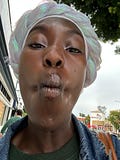
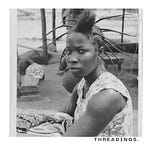


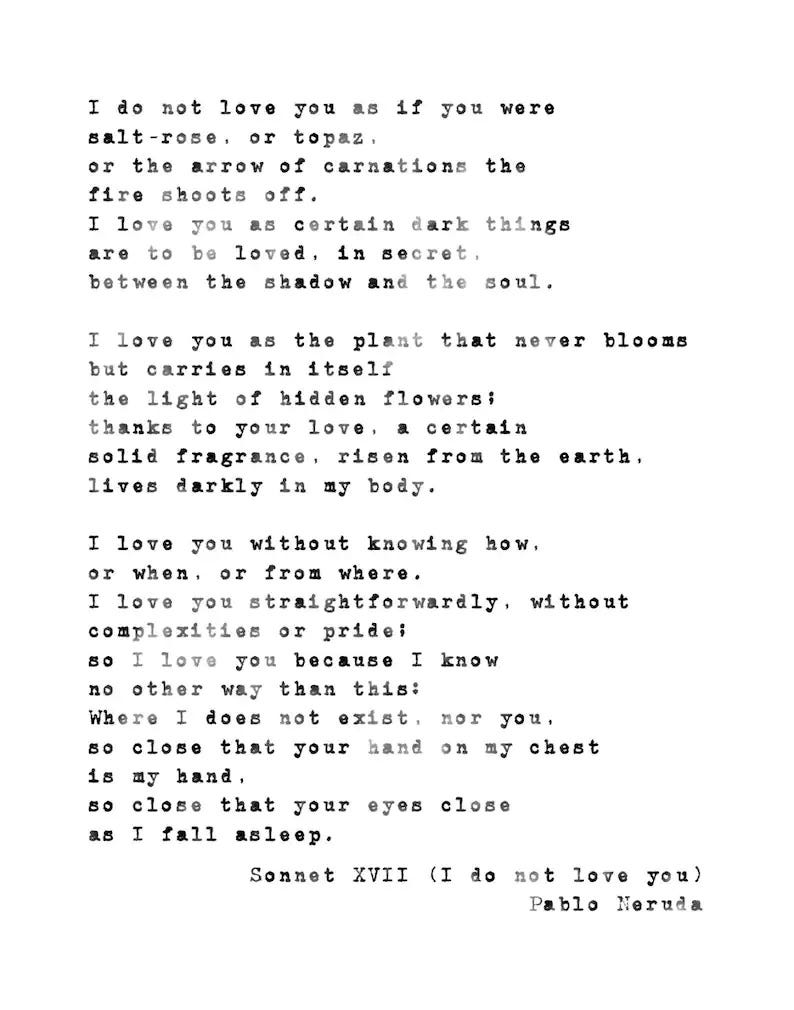
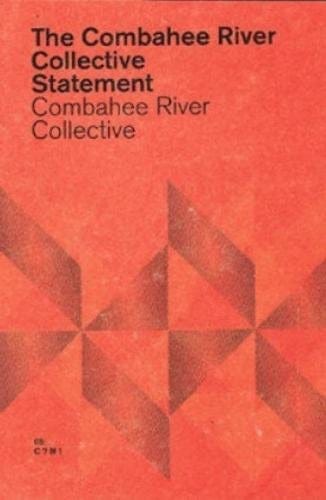

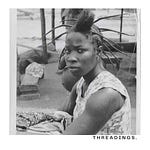

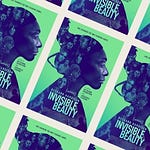


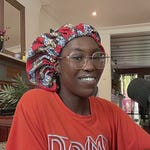
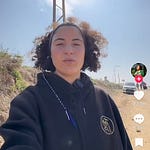
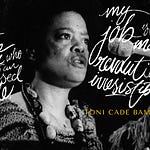
23 | Love Studies + Black Feminism: my study of self